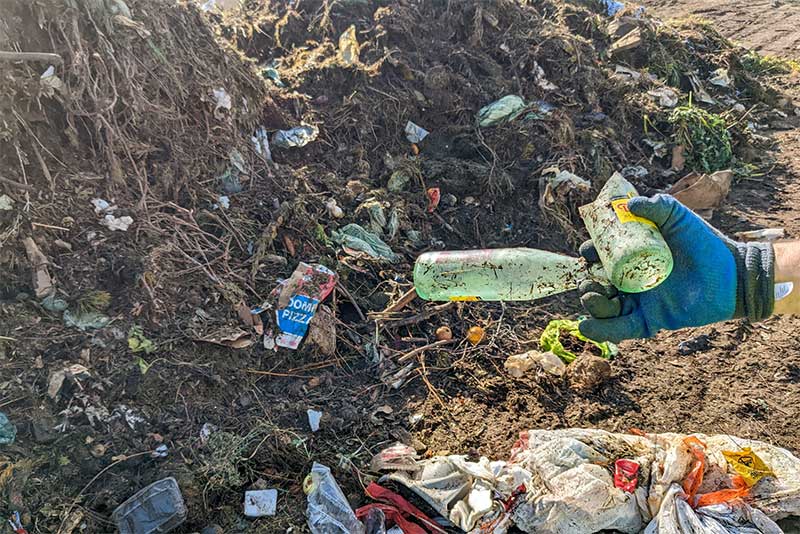Although compost is vital in the fight against soil degradation, we must categorically exclude the use of that produced today in waste processing companies from separate collection.
This compost, in fact, although it meets the European legal requirements on soil improvers, has no ability to restore the fertility conditions of the soil.
When producing compost, we must never lose sight of the ability to restore fertility conditions which, as is known, represents a solution to serious soil problems but which requires products with different characteristics based on the needs of the soil in question.
Product diversification can be achieved by modifying upstream, according to well-defined protocols, the quantity and quality of the material mixed with the organic material.
To obtain quality compost, the organic matrices that are treated, whether the treatment takes place anaerobically, aerobically or with a mixed system, must be "clean".
Waste from separate collection, the so-called "organic", often contains non-processable materials such as plastics, metals and glass.
Small elements often escape scrutiny with the consequence that in the final product, compost, we will find impurities such as macro and microplastics, insidious materials for the natural development of microorganisms in agricultural soil.
All this demonstrates that the production of compost from waste coming from separate collection has as its main objective not the restoration of the land but rather the processing of the organic substance coming from inhabited centers, the waste from the agri-food industry, the woody waste from green cleaning operations urban waste, livestock waste, sludge from purification and transforming it into mixed composted soil improvers.
A mention must be dedicated to the increasingly frequent circumstance of the use of purification sludge from civil wastewater for the production of mixed composted soil improver.
If civil wastewater purification sludge is used, the use of the resulting compost raises questions about its distribution. Certainly the parameters of the elements such as heavy metals or microbiological values are below threshold but we know that due to the nature of the original organic matrix, they are not at all negligible.
Another non-negligible consideration is the presence of plastic materials in the compost.
These elements, which represent the largest quantity of foreign materials present in waste, are the subject of study in all sectors of material recovery. But what is especially worrying are microplastics, i.e. fragments smaller than 5mm which represent the greatest quantity of foreign material in the wet collection line.
Let's consider the quantity of plastic that inevitably ends up in the collections and the mechanical and biochemical actions to which they are subjected before arriving at the actual treatment: it is not possible to eliminate the microplastics that inevitably enter the composting process . To date we know that they represent a problem as in the marine environment, where they have been extensively studied and the harmful effects on the food chain of the aquatic habitat are already known.
There is already all the evidence that allows us to state, without alarmism, that microplastics will soon become a problem for the earth system too.
Work must be done to avoid this damage.
Conversely, in relation to agricultural or first-process zootechnical and vegetal waste, precisely because it is taken at the "source" and therefore absolutely "clean", transformation into compost, possibly with the specific addition of further elements, represents the way forward for a correct reuse of secondary raw materials which are essential for the restoration of agricultural land.











